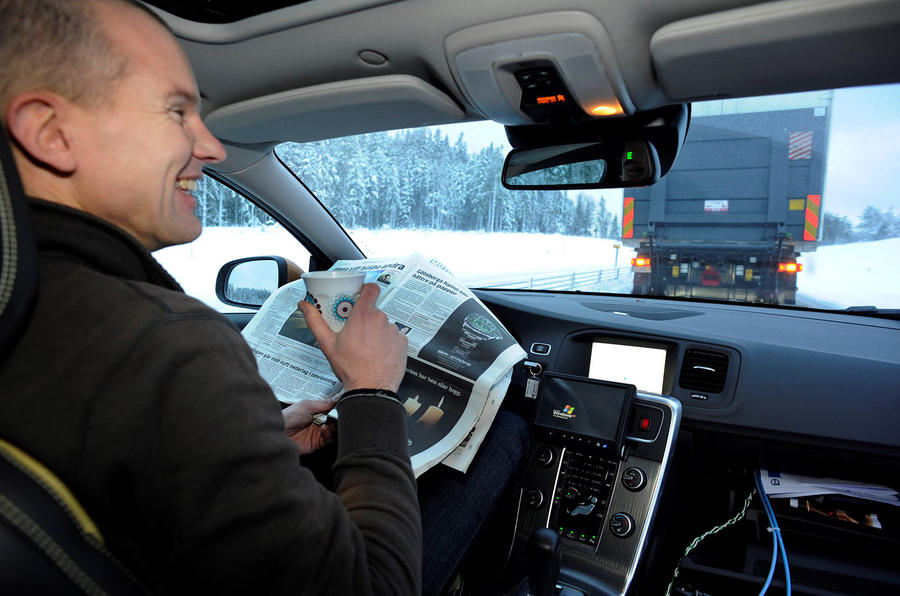Self-driving cars will carry a premium of at least £10,000 when they are introduced around 2021, thanks to the suite of high-powered computers and sensors that will be needed to make them safe at any speed.
Up to nine cameras, nine radars and a laser-scanning lidar system will be standard equipment, feeding data to up to five high-powered processing computers — all of which will add significant cost.
“There will be very powerful computing power in a self-driving car,” revealed Eric Coelingh, Volvo’s head of autonomous driving, speaking at a conference in London to discuss the future of self-driving cars. “We are talking processors measured in gigabytes, rather than the kilobytes we have now. The price will depend on volume, but we are talking expensive componentry that could easily be £10,000.”
UK to lead world in autonomous car development
Volvo’s design for a self-driving car also features the so-called ‘redundancy’ of safety-critical parts. The idea, which was developed in the aerospace industry to improve air safety, will also add cost. A self-driving Volvo will, for example, feature two antilock braking pumps and two electrical steering systems, one of each reserved as a back-up to be used if a main unit fails.
Volvo V40 electric concept unveiled, Volvo XC40 crossover concept revealed
“We are very focused on safety, so we have to cover every eventuality, like a major safety-critical component failure,” said Coelingh.
Volvo’s self-driving tech is based on the Drive PX electrical platform being developed by Nvidia, the Santa Clara, California-based processor and chip maker that produced the graphics hardware for Microsoft’s Xbox. Nvidia’s skill in graphics processing has led to a new auto division supplying a “powerful visual computing system”.
An important feature of Drive PX is that it does not need roadside beacons and infrastructure, instead relying solely on in-car sensors.
Volvo is forging ahead with self-driving cars, largely because it fits the brand image of safety, but also because it has less to lose than brands focused on driver enjoyment. BMW, for example, is much less enthusiastic about autonomous driving.
With this in mind, Volvo will put two fleets of up to 100 Volvo XC90s on the roads of Gothenburg and London next year. Using prototypes of Volvo’s DriveMe self-driving autopilot system, they will operate mainly in a mixed motorway and urban environment.










Join the debate
Add your comment
at last
There are these people called "Early Adopters"
Your right, the general public are not going to spend £10k on an autonomous vehicle option for their car. But if you're buying a Merc S65 AMG Coupe at £180k+ you will! If only to say that it does it. The Technology increases in popularity, gets cheaper, moves down a level, increases in popularity, gets cheaper, moves down... and so on.
1975 a Cray super computer cost $8.7m (or $40m today) and had 80Mhz of processing power. In 2016 you can buy an Apple Watch for £300.
To say it's not going to happen is idiocy, and the rate at which technology gets cheaper, I'd expect that £10k to come down very quickly!